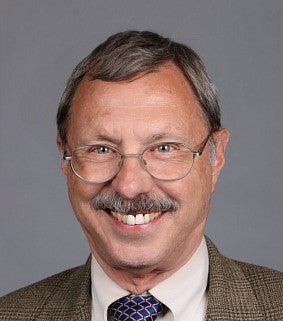Major: Chemistry and Mathematics
Former Member, CHC Advisory Council
Retired scientist

Science, technology, engineering, and mathematics were vibrant fields of study long before a Washington bureaucrat came up with the STEM acronym to encourage students to get into these fields. As a child growing up in the 1950s and 1960s, I observed technology’s increasing influence on society. Television sets appeared in homes, transistor radios were the rage; the USA and USSR were engaged in the space race to launch the first satellite, and then get to the moon. It was an exciting time to grow up, and science offered challenging careers.
While I had been accepted at several engineering institutions like MIT and Cal Tech, I decided that the Clark Honors College offered a bold and stimulating opportunity to associate with outstanding teachers and fellow students in small classes in a liberal arts setting. In those days (I entered the UO in 1963), the honors college was still very much an experiment. To me, the core curriculum ensured that I took subjects outside the science and math courses in which I excelled so that I received a multidimensional education that would serve me well going into the future. The non-STEM courses I took made me think about subjects far afield from my interests. The cumulative exams we took made sure that I could synthesize the breadth of an entire year of course material.
“ To me, the core curriculum ensured that I took subjects outside the science and math courses in which I excelled so that I received a multidimensional education that would serve me well going into the future. ”
— AL WEST
As a chemistry and math major, I was fortunate to engage in student research starting in the summer of my freshman year. This work culminated in my CHC honors thesis, and was a great training ground for my doctoral work. After receiving my PhD, I went to work at a national laboratory, beginning my career as a research scientist and later moving into management. The education I received in the CHC provided a solid foundation for any job opportunity I encountered during my 35-year career. I ended my professional career helping the National Science Foundation at an Advanced Technological Education Center working with undergraduates. It was an opportunity to give back, and come full circle, as the NSF funded both my undergraduate and graduate research careers.
Al West, PhD, is a retired scientist and a member of the CHC Advisory Council.
